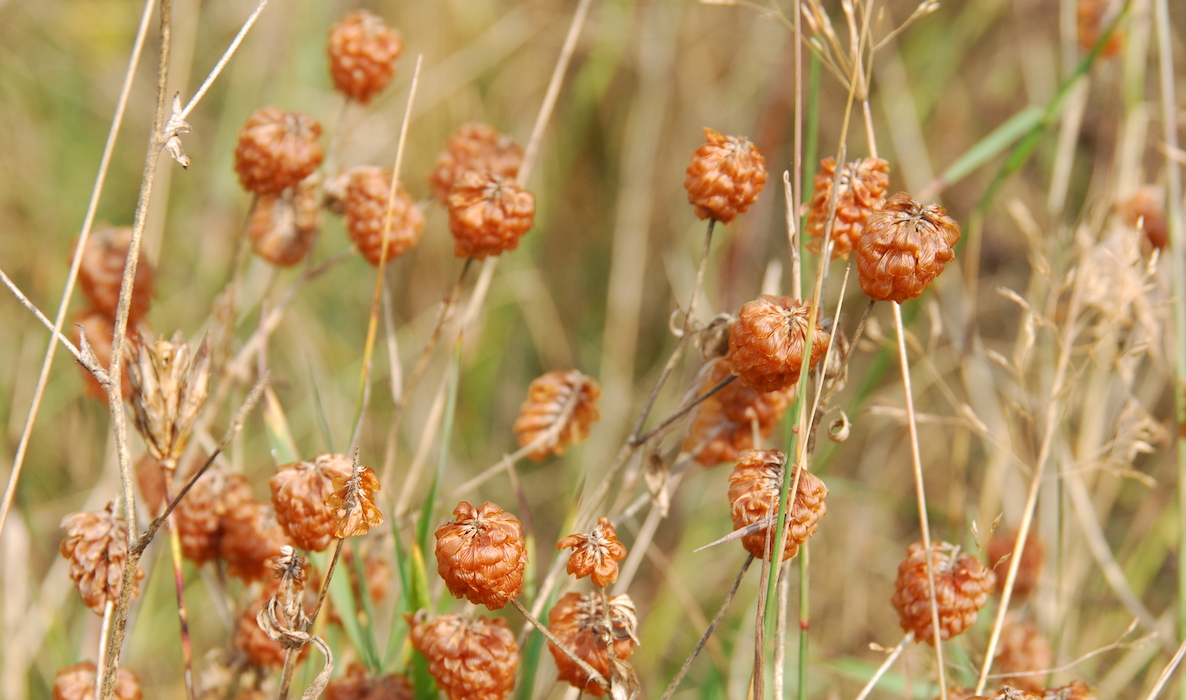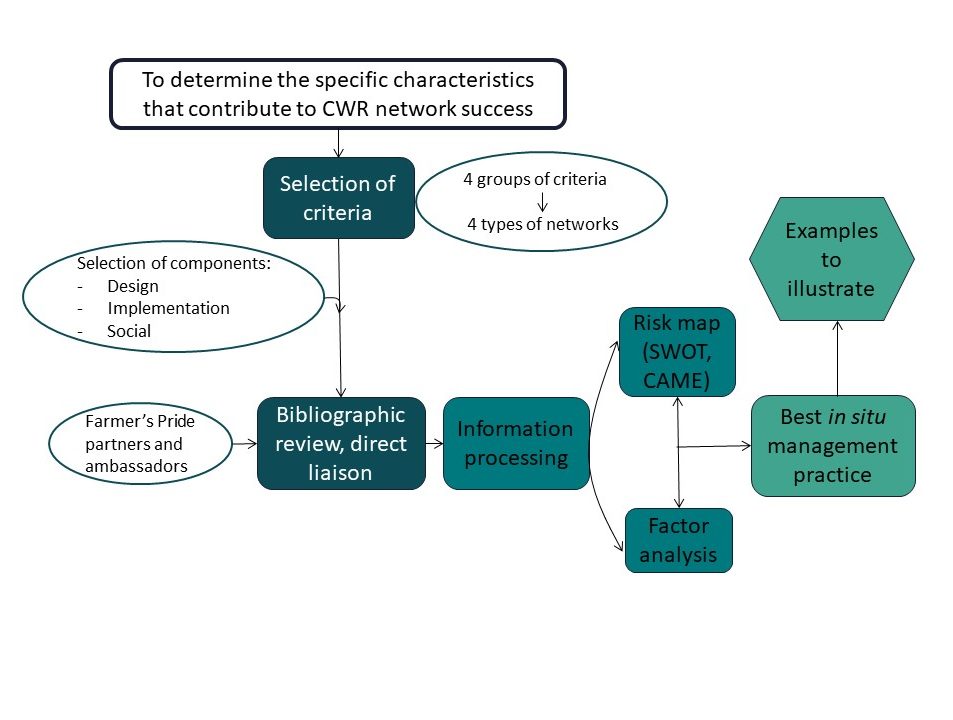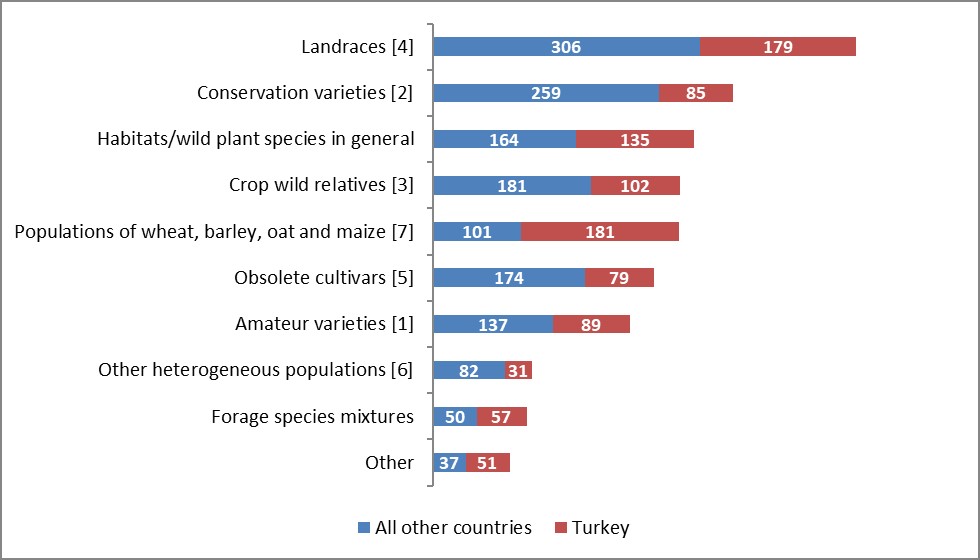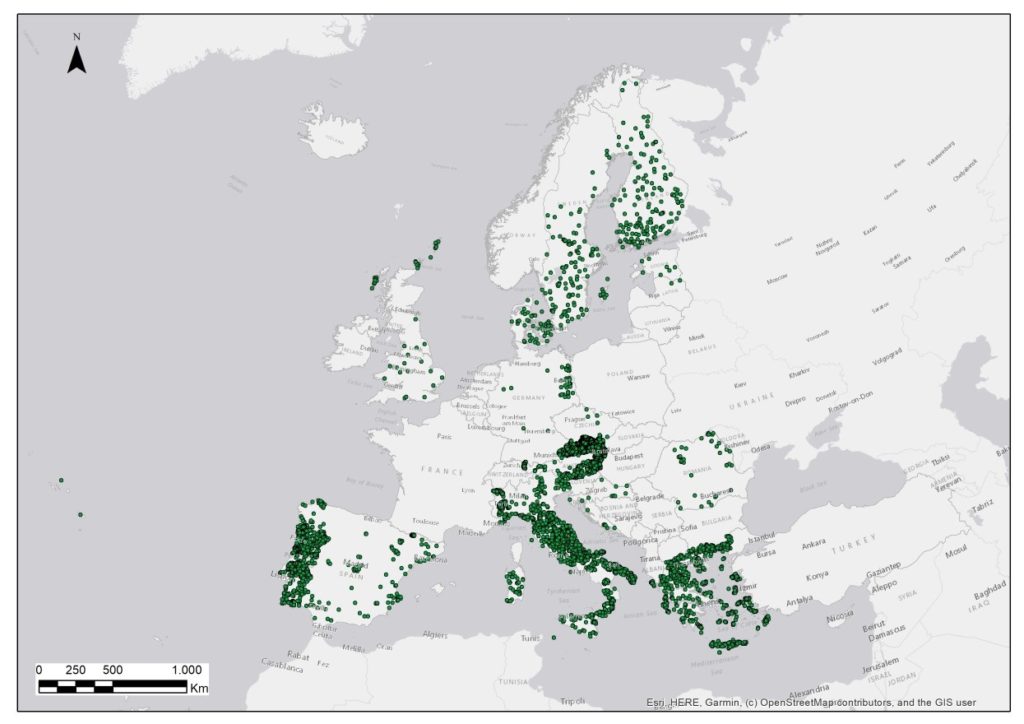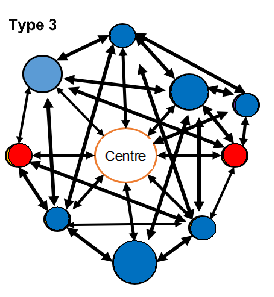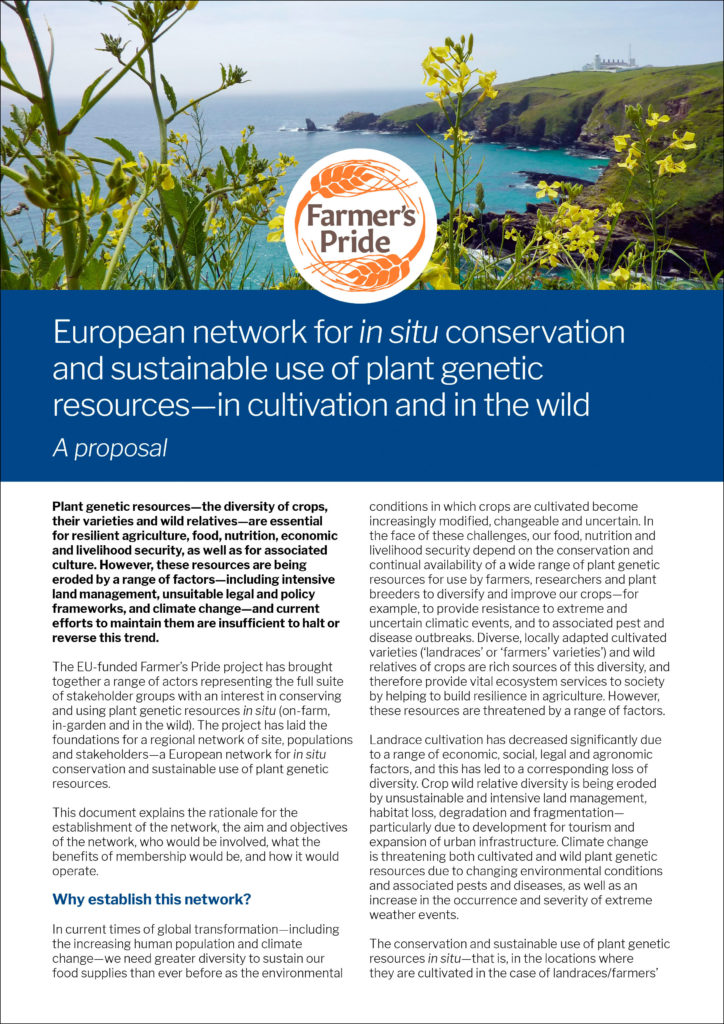
Proposal to establish a European in situ PGR conservation and sustainable use network
The Farmer’s Pride project has laid the foundations for a regional network of sites, populations and stakeholders — a European network for in situ conservation and sustainable use of plant genetic resources—on-farm and in the wild.
This document explains the rationale for the establishment of the network, the aim and objectives of the network, who would be involved, what the benefits of membership would be, and how it would operate.
Language versions available: Croatian, English, German, Greek, Hungarian, Italian, Spanish, and Swedish

European in situ PGR conservation network
The steps taken towards establishing a lasting in situ network for the conservation and sustainable use of plant genetic resources in Europe are presented in this report, along with recommendations for next steps
Crop wild relative network showcases – analysis and best practises
What factors contribute to the success of crop wild relative in situ conservation networks?
Based on a review and analysis of a range of networks, a best practice evidence-base showcases successful design, implementation and management practices to inform the establishment of the European network for in situ conservation and sustainable use of plant genetic resources.
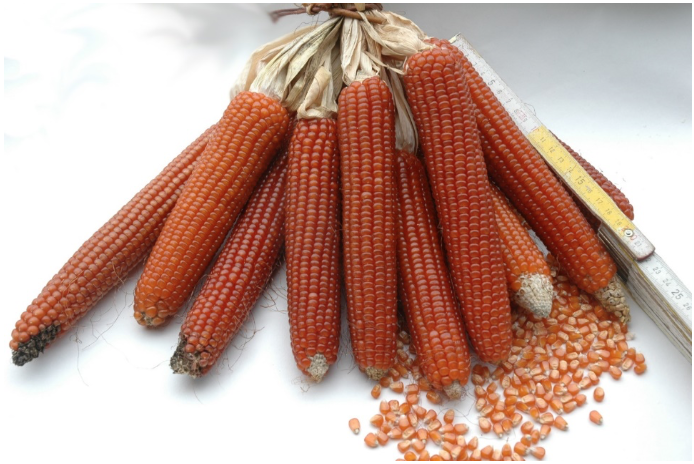
Proposed criteria for evaluating network efficiency in giving access to in situ landrace diversity
This document analyses different European and non-European in situ conservation networks and proposes a set of criteria for the evaluation of the efficiency of collaboration platforms for in situ conservation of landraces.
Results of plant genetic resources in situ conservation and sustainable use stakeholder analysis
We know that a wide range of stakeholders are involved in the conservation and sustainable use of plant genetic resources but who exactly are they and what are their roles?
Find out in this report, which not only highlights stakeholders’ activities and interests, but also provides concrete evidence of their interest in becoming a member of a European network for in situ conservation and sustainable use of plant genetic resources.
Landrace conservation in Europe – First localities for inclusion in a regional in situ PGR network
Based on more than 19,000 records of landrace populations maintained in situ within 14 European countries, 100 landrace ‘hotspots’ and other localities of interest have been identified. This is part of the process to identify potential landrace maintainers for membership of a European network for in situ conservation and sustainable use of plant genetic resources.
Community seedbank management guidelines
Using four community seedbanks as examples, this report identifies, strengths, needs and guidelines for successful and effective community seedbank management.
Developing network models: Analysis of promoting and blocking factors for the development of community seedbanks in Europe
What are the factors that impact on the development of community seedbanks (CSBs)? This report highlights the internal factors (such as organization and membership structure, missions and visions) and external factors (such as the legal and policy environment and economic aspects) that influence CSBs, such that there is no single model for success.
Case studies, best practices and toolkits for in situ management of plant genetic resources
In situ plant genetic resources conservation information management tools
White paper on establishing a new network
Strategic action plan for PGR in situ maintenance
